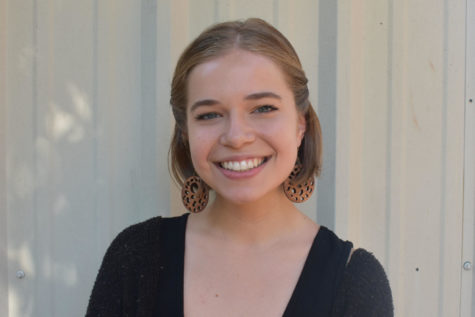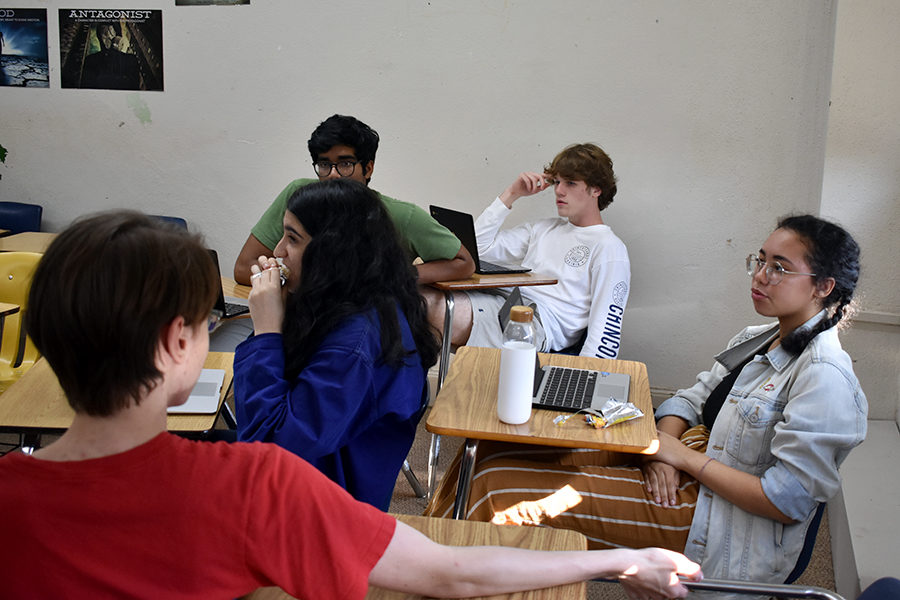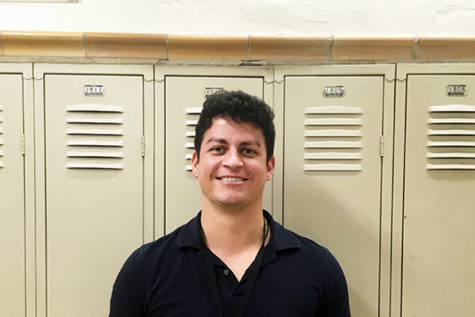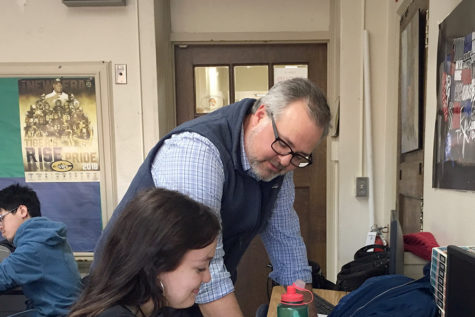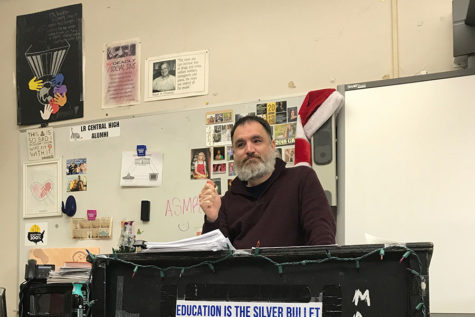Hairston Reflects on Career in Teaching
Students may have never known English teacher Scott Hairston had he not first known English teacher Pam Fulmer.
“My senior English teacher, Ms. Fulmer; I’ve forgotten a lot of the little facts that she taught us. What I remember very vividly, however, is how she made us feel. It felt like she really cared about what we had to say, as if she was genuinely interested. She just had a certain way; there’s an art to it,” Hairston says.
After 16 years of teaching, Hairston still seeks inspiration from Fulmer as he tries to make his classroom environment like the one he thinks back to fondly.
“She was very bright, so the fact that she cared what we had to say made us feel like we had something to say worth caring about,” Hairston says.
He shows his care in part by taking into consideration what students have to juggle throughout their school day.
“My class is just one. I may look at a student and think ‘you’re not giving me your best effort.’ Of course I want a class that’s important to me to be important to them, but I try not to take it too personally,” Hairston says.
Helping students engage in a form of conversation with texts is his goal in teaching literature.
“I want students to cultivate a kind of hermeneutical humility,” Hairston says. “What I mean by that, to put it simply, is the ability not only to read texts, but to be read by them. I want them to understand the claim that texts make on their lives, to not only criticize but also be criticized. I want them to experience texts in such a way that they come away changed.”
Hairston works to balance the responsibilities of being an educator, having a family, and sponsoring extracurricular activities such as Ethics Bowl and Student Council.
“The most difficult aspect of teaching is grading. If I spend 10 minutes on one essay, multiply that by 75 students, that’s 750 minutes, which comes out to around 12 hours. I’m not complaining; I enjoy it on some level. But I also enjoy spending time with my children,” Hairston says.
However, he notes that the difficulties don’t outweigh the rewards, one of which is getting to meet interesting people each year.
“When I think of the students that I respect, they’re thoughtful, and diligent, and curious,” Hairston says. “I’d say the same for teachers. The teachers who’ve influenced me the most, I think, are those who are passionate about their subject matter. I find that kind of thing infectious.”
Right in line with that, Hairston remains passionate in his career and strongly believes he’s doing what he’s always wanted to do.
“When I was in kindergarten I had an imaginary classroom of students I’d teach when I came home,” Hairston says. “I don’t know that I’d be happy doing anything else, though that may just be a failure of my imagination. Since I’ve started, I’ve never really looked back.”
